THE PIANIST. Roman Polanski’s Scream Of Helplessness
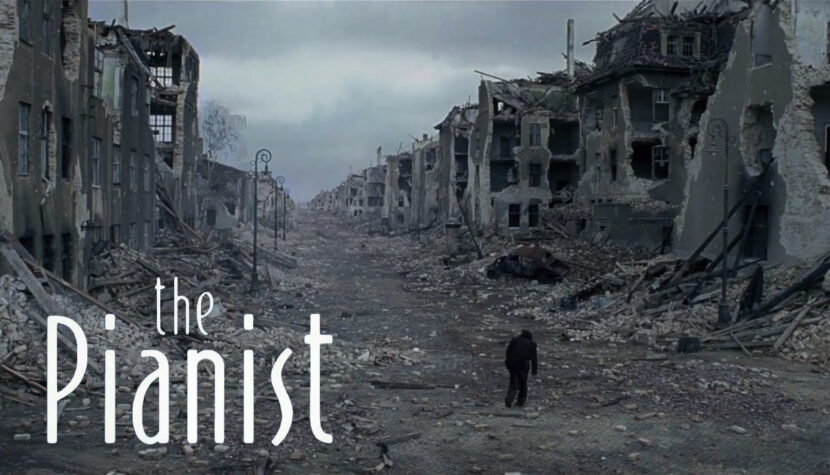
The cruelty of wartime is often contrasted with the heroism of individuals and their sacrifices. Many times, monuments are erected in memory and honor of a few select heroes, while the unimaginable tragedy of hundreds of thousands of people serves as a dreadful backdrop to the story.
Roman Polanski in The Pianist took a different approach. He created a film devoid of heroes. Here, chance, complete human indifference, defenselessness, and ultimately inertia take center stage. Władysław Szpilman is almost bewildered by what is happening. He observes. And the viewer watches too. His eyes see a lot, really a lot of completely senseless drama. A scene where Jews are forced to dance, provoked by the Nazis. A Jewish band plays, a few couples dance, the Germans smoke cigarettes and laugh. Nearby, a child’s corpse lies in a ditch.
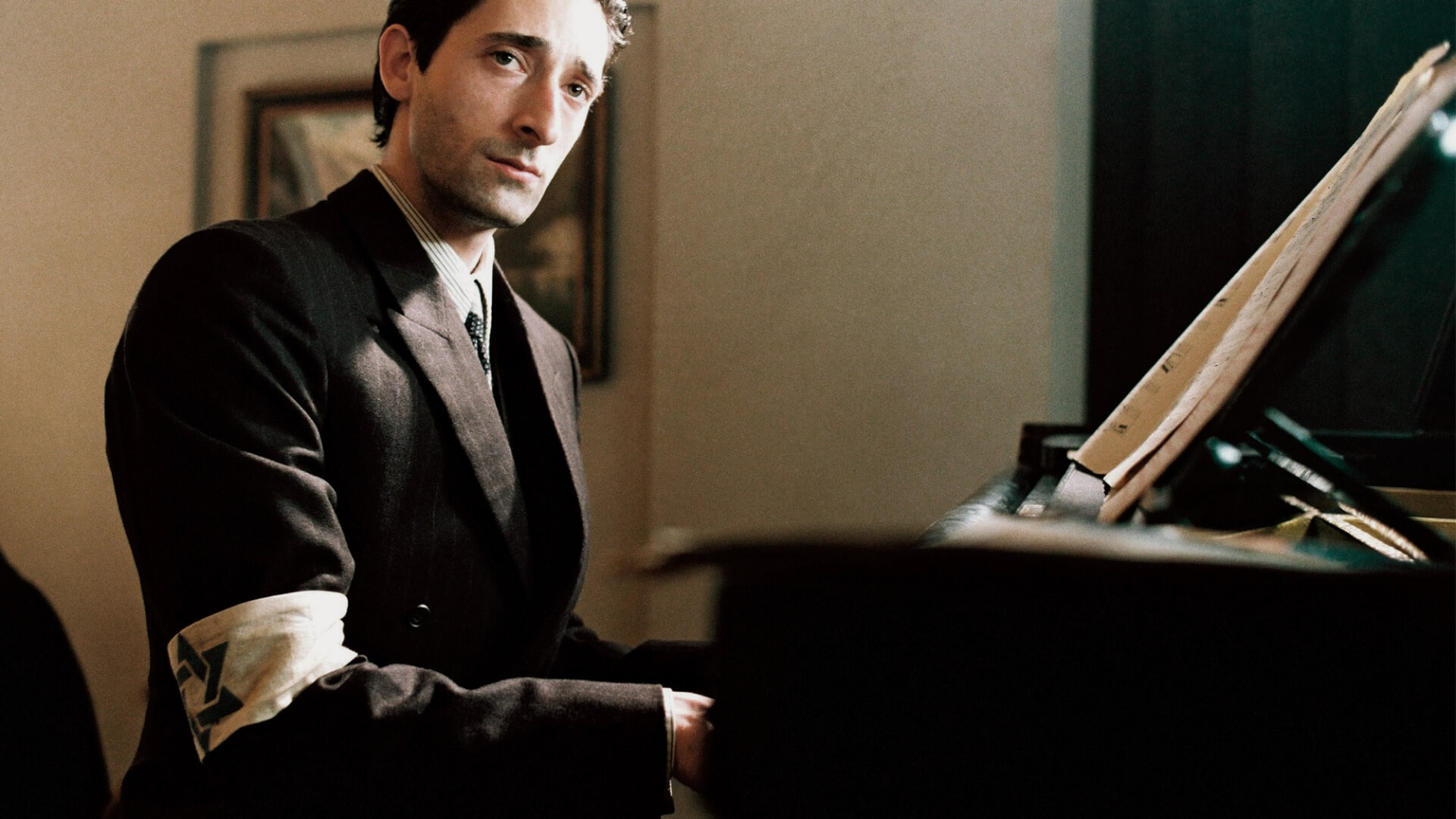
The Pianist strikes at the heart. For a sensitive viewer, which I consider myself to be, it can also be exhausting. It is too realistic, there is too much brutality without unnecessary cinematic commentary. This film almost “hurts” at certain moments, making you want to close your eyes. Because Polanski plays with our cinematic habits. He depicted the tragedy differently than Steven Spielberg in Schindler’s List. There, when the SS officer ran out of bullets for his last victim… he spared her life. Szpilman witnesses a similar scene, except the SS officer simply changes the magazine and completes the murder. Polanski deceives the viewer. It seems we will be dealing with a war hero, but it turns out that Władysław Szpilman survived the wartime nightmare… by chance. He himself did nothing, he was passive, indifferent, he did not fight, he just observed. As if he froze in place, marveling at the absurdity when a German, by kicking, kills a child. Szpilman is scared, he does not pretend to be someone he is not. Everyone else, waiting at the station for a train to a labor camp, which turns out to be a death camp, is also scared. Szpilman can almost irritate with his helplessness in the face of the absurd situation he and half a million Jews found themselves in.
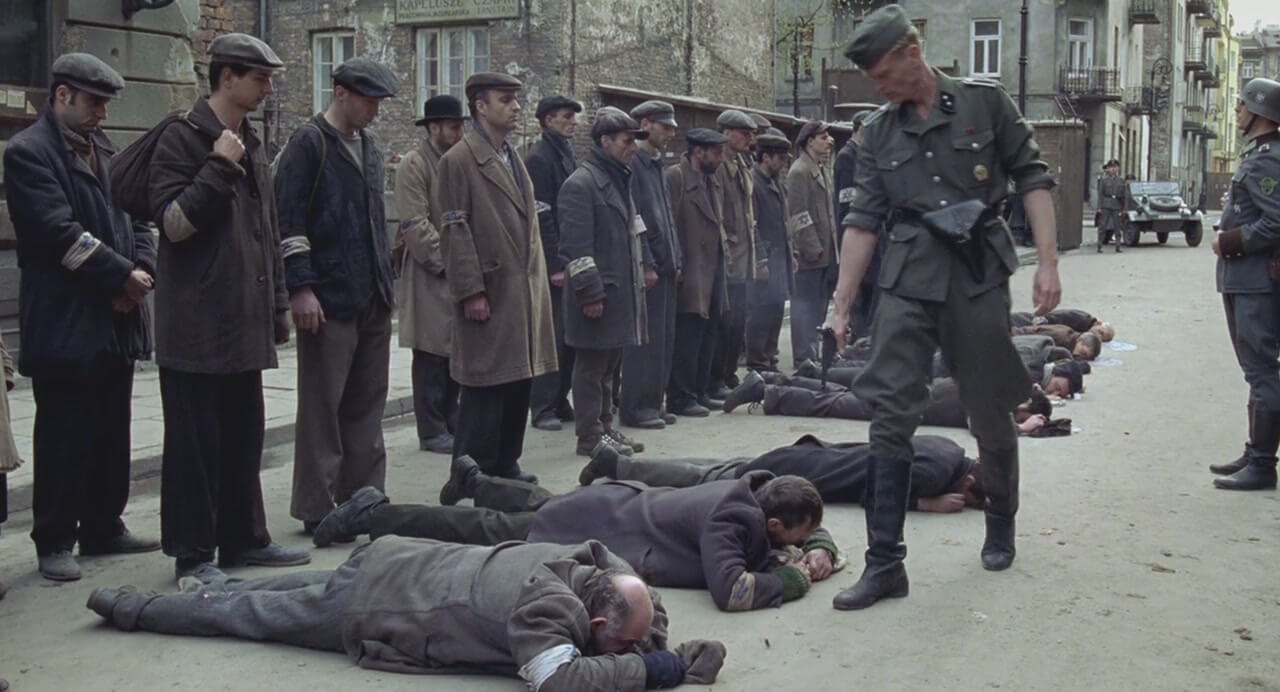
Polanski sees the war through the lens of absurdity. War itself is absurd, proving the unfathomable, inherent stupidity of humanity. People kill people for some reasons. Someone might say that this is human nature, and following the philosopher Thomas Hobbes’ dictum Man is a wolf to man, much can be explained. But that is a mistake, because in the face of the senselessness and cruelty committed by people, it is hard to speak of any sense or principle governing humans. One can only bury their head in their arms and cry, just like Szpilman walking through the streets of the ruined and deserted Warsaw ghetto. This is fairly honest and devoid of falsehoods, any contrived ideologies. Only a simple tragedy, the most terrifying thing there is. The sight of a destroyed Warsaw is terrifying (tragically and beautifully depicted, thanks to Paweł Edelman and Allan Starski) – first bombed, then systematically destroyed, and then burned. But even in this there is a painful absurdity. The sight of a vibrant market, where there is plenty of food, where beautiful and well-groomed women stroll through narrow streets… And next to it, a completely destroyed ghetto, starving people who cannot walk on the streets because for them, only the gutters are allowed.
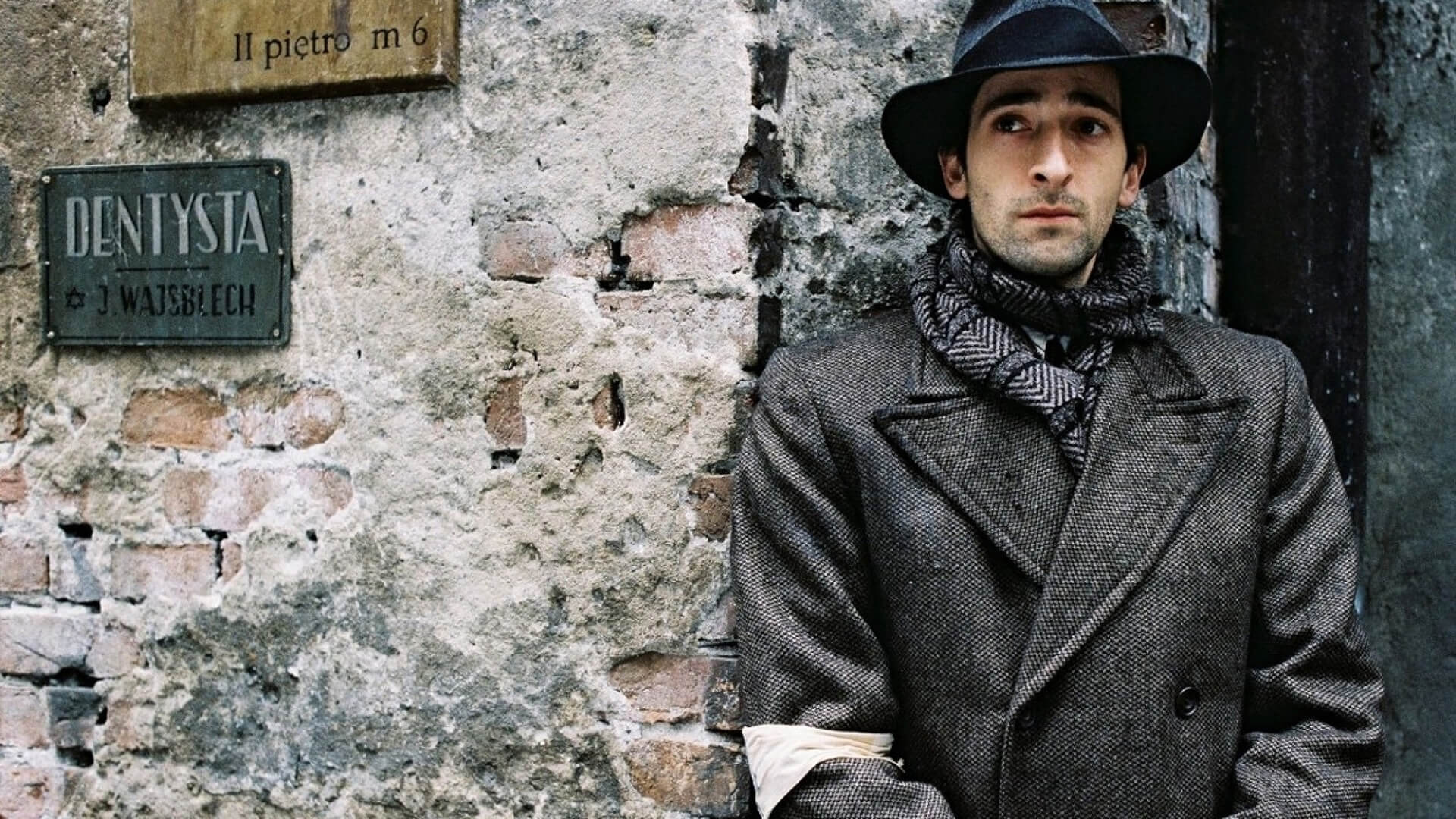
The film is strong, brutal. Painfully true. The authenticity of this film is built mainly from the wartime memories of the eminent Polish pianist, though it is impossible not to notice how much of Polanski’s own life is in it. At the age of 7, Roman found himself in the Krakow ghetto, from where his mother was sent to a death camp, and from where he miraculously managed to escape and hide during the war in a village in Lesser Poland. He saw people dying on the streets, the cruelty of the Nazis. Among other things, because of his personal experiences that permeated The Pianist, the film is very important. Important because it is a very honest and sincere portrayal. Szpilman’s story breaks stereotypes. A film about the Holocaust has always touched on martyrdom themes, often exuding one-sidedness in its narrative.
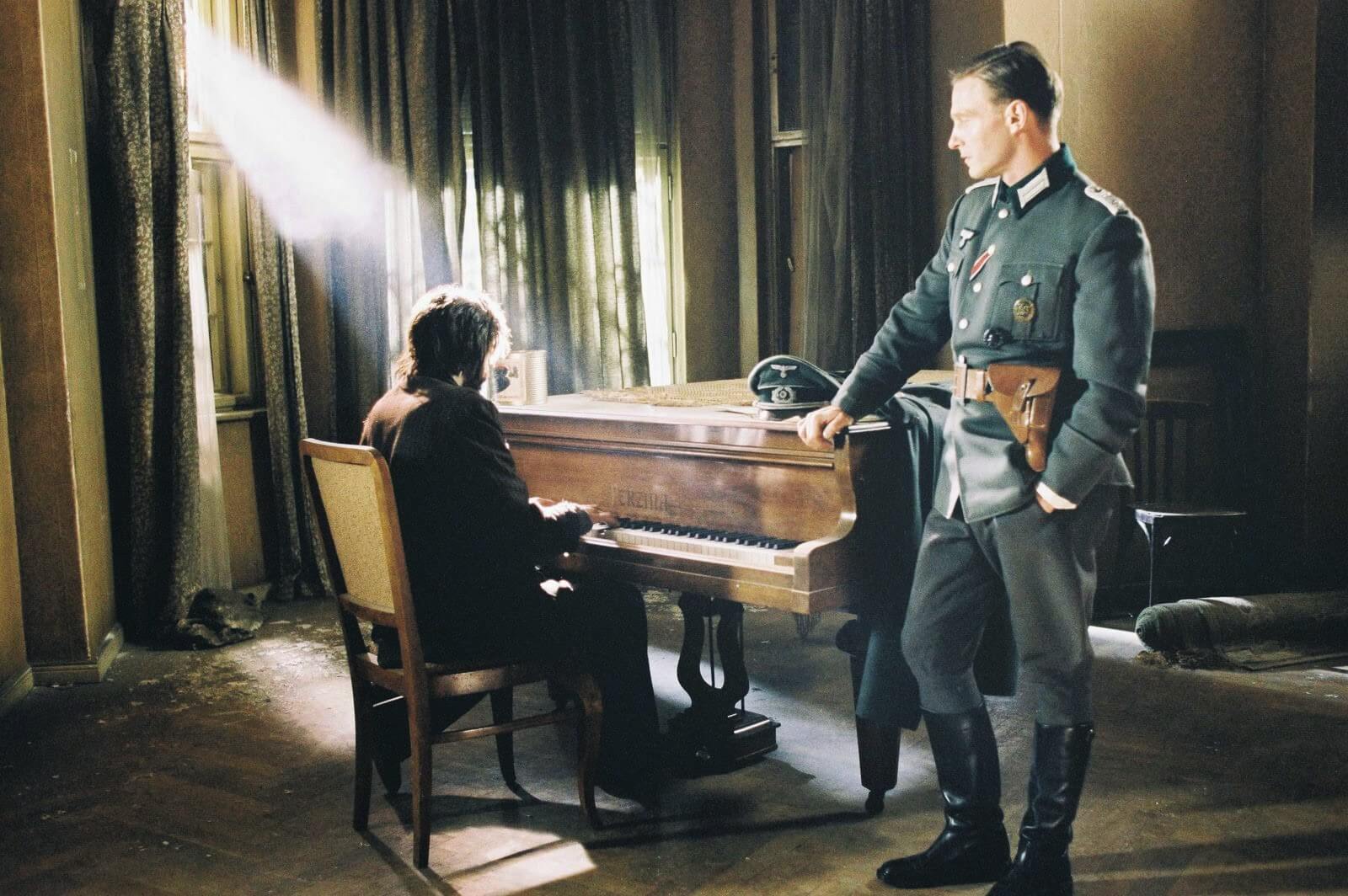
In The Pianist, there is no lack of the unique martyrdom of the Jewish people (after all, it is a huge tragedy, of which this nation was a special victim), but Szpilman pays homage to the truth. He speaks of Jews who died in agony, but also of Jews who set up a police force in the ghetto, overseeing “human transports” to Treblinka. Thus, they could be called collaborators with the Nazis. Szpilman sees Poles who help selflessly, but he also sees those who call a encountered Jew a “pig”. Szpilman meets cruel SS officers, but also those who are humanely kind. This film is surprising because it talks about victims and executioners in a different, more honest way.
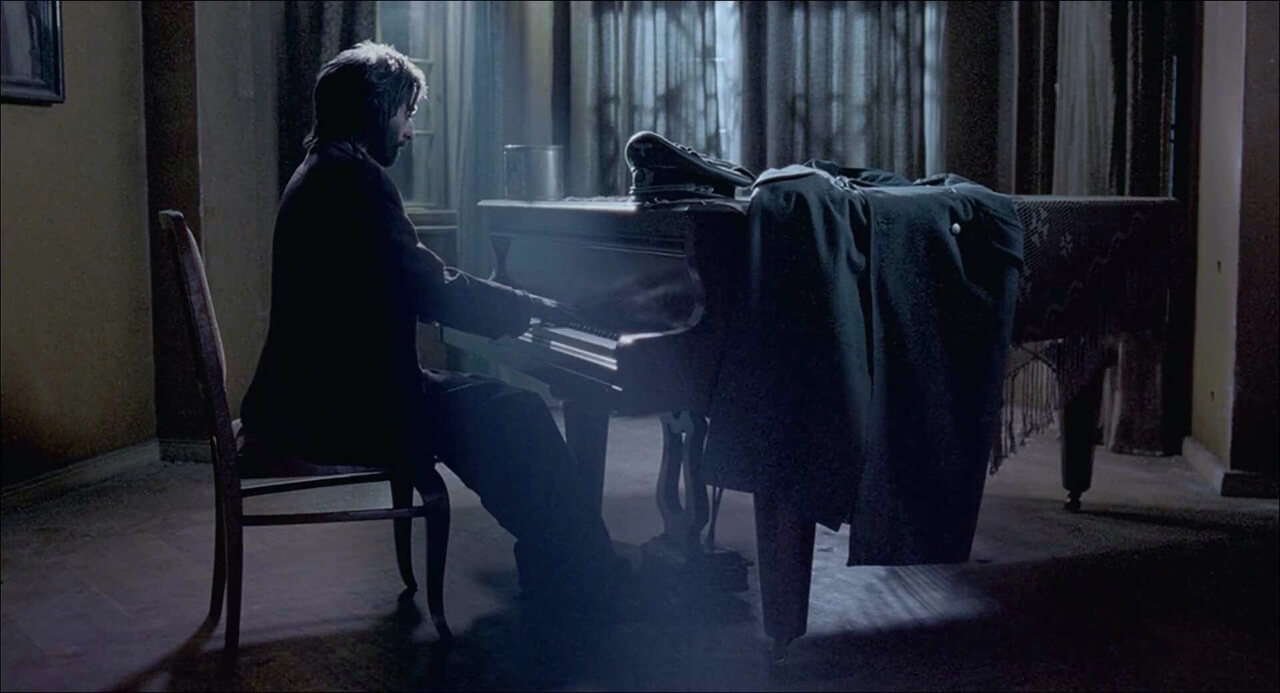
Analyzing The Pianist, one can ponder many important aspects of this story. I wonder whose story it is. It would be easiest to say Władysław Szpilman’s, but… He is too modest a man, as I said, almost intimidated by history. Szpilman looks and sees the tragedy, he tells about people. This is not his story, it is a story of war, of people, both perpetrators and victims. The Pianist speaks of helplessness, of the silence that accompanies the tragedy. Except that it is a scream of silence…

